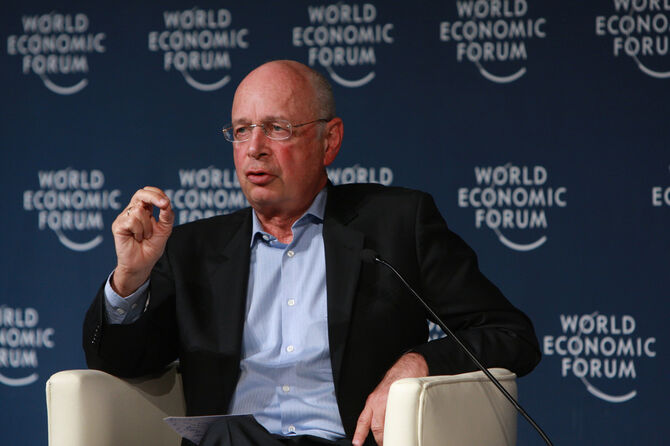Davos 2017: WEF seeks return to stakeholder roots
WEF founder Professor Klaus Schwab set out 2017’s key themes at a pre-conference briefing before this year’s World Economic Forum in Davos.

Benedikt von Loebell
Responding to the populist agenda
Both now and in 1986, Professor Schwab suggests that contemporary events show economic progress becoming decoupled from social progress.He served a reminder ahead of tomorrow’s opening of the annual event for leaders that the stakeholder concept is at the heart of the WEF, which itself is committed to aligning entrepreneurship, local and international agendas with global public interest.Davos 2017 key themes
In this context, Professor Schwab outlined the four major pillars of what is set to be the highest-ever attended Davos forum.Its organisers expect around 3,000 leaders from local communities, social enterprises, regional and national government, and businesses to attend the three-day event to discuss this year’s four main themes:- reinvigorating global growth
- ensuring inclusion in market capitalism
- the Fourth Industrial Revolution
- reimagining global cooperation.
Related reading:
Green paper keeps employee voice on May’s agenda
Promises, promises – nomadic leaders in a post-trust age
Trump willing to do ‘quick’ post-Brexit US-UK trade deal
Introducing the key pillars
Introducing the first theme, Professor Schwab said the recent global average economic growth rate of three per cent is “not enough” to solve the major challenges of social inclusion. For example, the high youth unemployment experienced by young people in many countries in Africa.Remarking that the world GDP growth rate still has not returned to the pre-economic crisis level, we need to “do more to reinvigorate global growth,” said Professor Schwab.On the second them of ensuring inclusion, “every market economic will produce winners and losers,” he commented. “But the system will only be sustainable if there is enough solidarity between the winners and the losers.”The Fourth Industrial Revolution
The seemingly exponential rise of technology, artificial intelligence (AI) and machine learning is the core of the third pillar of Davos 2017.“If we look back one just one year, many things I considered to be science fiction are already a reality,” Professor Schwab offered. “Just think about the discussion of artificial intelligence; self-driving cars are becoming a reality.“All those things are having a tremendous impact, not only on the economy, but also as far as job markets are concerned.”Globalisation and deglobalisation
Finally, “and maybe the most important,” Professor Schwab introduced the fourth theme: reimagining global cooperation. “The world today is multi-polar geo-politically and geo-economically. We have to adapt to this new context, but at the same time, we have to reinforce our global ties.“I am always surprised to see the discussion on globalisation and deglobalisation. We have to make sure that our markets become more fair, but that they also remain open, because we are a global community – interconnected, interdependent – and if we do not address our common issues as a global community, we all will fail. It’s an all win or we all lose situation.”For related news and features from Davos 2017, see our leadership & management section.
Access hundreds of global services and suppliers in our Online Directory Subscribe now to our Global Mobility Toolkit
Subscribe now to our Global Mobility Toolkit 
©2024 Re:locate magazine, published by Profile Locations, Spray Hill, Hastings Road, Lamberhurst, Kent TN3 8JB. All rights reserved. This publication (or any part thereof) may not be reproduced in any form without the prior written permission of Profile Locations. Profile Locations accepts no liability for the accuracy of the contents or any opinions expressed herein.
































